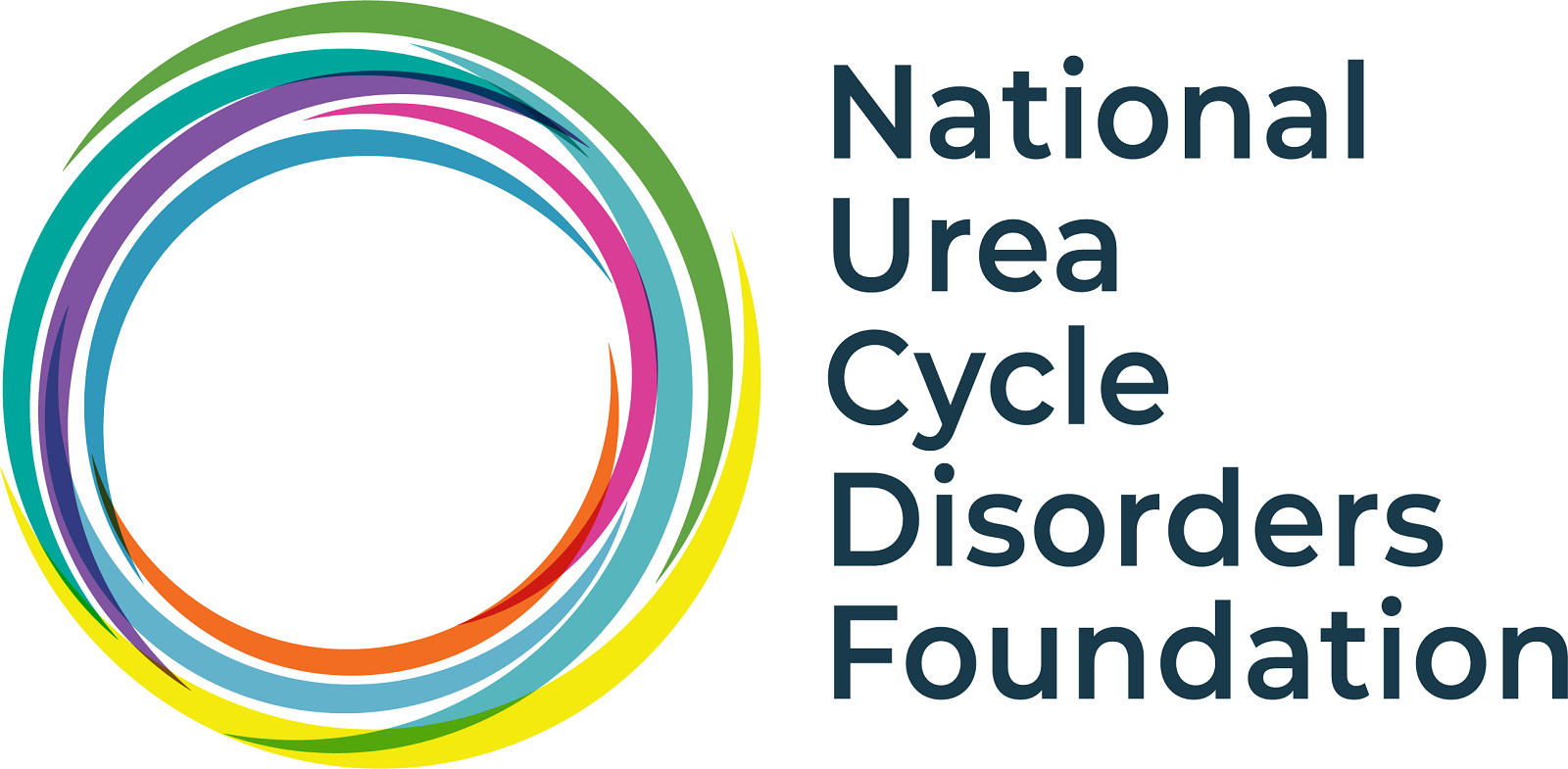Urea Cycle Disorder Research
Hope for the Future - Advancing Research
In the past ten years, there has been a dramatic increase in much-needed urea cycle disorder research, particularly with ongoing studies conducted by the Urea Cycle Disorders Consortium (UCDC) as part of the National Institutes of Health Office of Rare Diseases Clinical Research Network (RDCRN).
The Urea Cycle Disorders Consortium (UCDC) is a pioneering a research collaborative, bringing together top researchers, clinicians and other healthcare professionals to work collectively to improve the lives of patients with urea cycle disorders.
As a partner in the UCD Consortium, one of the key roles of the National Urea Cycle Disorders Foundation (NUCDF) is to provide critical input regarding the need for and development of new studies. NUCDF's unique perspective as the center of the UCD community provides insight to researchers about treatment and management issues, as well as focus for key research priorities. NUCDF also provides information to our families and affected individuals about research studies and how they can participate in moving critical research forward.
NUCDF believes that it is critical to invest in a clinical research infra-structure to enable us to find safe and effective treatments for UCDs, ensure patient access to expert care, and to accomplish our ultimate goal of a cure. There are currently 16 UCD Consortium clinical research centers across the U.S., as well as three international sites in Toronto, Zurich, and Heidelberg. Researchers and clinicians all over the world are invited to participate in the UCD Consortium efforts, and to join us in advancing our research as quickly as possible. In addition to funding neuroimaging studies at the Georgetown site, in late 2016 NUCDF began funding 2 additional research sites at Stanford and UC San Francisco. The NUCDF Fellowship Award supports the brightest and most promising young research investigators and their research projects in the field of UCD. NUCDF Fellows Ayelet Arez, Oleg Schelochkov and Sandesh Nagamani have made transformational discoveries that benefit UCD patients and the general population. The work of the most recent NUCDF Fellowship recipient, Lindsay Burrage, MD, resulted in the development of clinical trials for enzyme replacement therapy for arginase deficiency.
What kind of research is being conducted?
There are three main types of research that can help improve the quality of life for UCD patients.
Basic Science Research is carried out in the laboratory, and is often referred to as "bench research." This research helps answer questions about the causes of urea cycle enzyme defects. It also plays a critical role in understanding processes in the body that are affected by UCDs, and provides a way to test potential therapies and drugs. This type of research is conducted on proteins, cells and animals. Basic science research provides clues and information that leads to more advanced research.
Translational Research (Drug Research): The National Institutes of Health (NIH) defines translational research as the process of applying discoveries generated during basic research and preclinical studies to the development of trials and studies in humans. Translational research enables knowledge from basic science research to be taken to the next level -- new drugs and treatments that can be tested in humans in clinical trials.
Clinical Research is patient-centered research, conducted in human subjects or human tissues. By interacting with patients within a specific protocol, researchers can study the mechanisms of UCD, the effectiveness and safety of therapeutic interventions, and develop new technologies.
Key Focus
The Urea Cycle Disorders Consortium is currently conducting clinical research studies on the natural history of UCD by following patients over an extended period of time. This helps researchers understand the indicators of disease severity (hyperammonemia, developmental disabilities, long-term neurologic and liver effects, etc.), as well as safety and effectiveness of currently used treatments and therapies. Researchers are also studying the relationships between disease severity and progression within each of the different urea cycle disorders themselves.
NUCDF is focused on stimulating and supporting new innovative research on improving the understanding of the mechanisms of brain injury and developing interventions to prevent the effects of UCD on brain function. Patient participation in these studies is critical to driving this research forward, improving the lives of patients now, and reaching our goal to end the devastating effects of UCDs.
UCDC Clinical Research Studies
UCD International Patient Registry
The Urea Cycle Disorder International Patient Registry (UCDiPR) is powered by UCD patients and families around the world to make a difference in the fight to conquer UCD. The UCDiPR is an IRB-approved research study sponsored by the National Urea Cycle Disorders Foundation. The Registry is housed in an NIH-endorsed secure platform uniquely designed to collect information on how UCD affects patients and families. By participating in the Registry and completing your profile survey about your own unique experience with UCD, you are contributing to a global database about the prevalence of UCD subtypes, the accessibility of diagnosis, care and treatments, potential triggers for instability, effects of the diet and dietary habits, as well general, neurological, and quality of life issues, and how UCDs affect patients similarly or differently. The information you enter is anonymized and pooled with the anonymized data from other participants to create a centralized resource that is vital to helping researchers learn more about UCDs, driving and accelerating the development of new research and treatments, identifying issues that need targeted research, and improving the care of all those with UCD.
Every person counts in the fight against UCD. As a participant in the UCD International Patient Registry, you will be able to explore data and view how your answers may compare to others. You will also have access to information about new research for UCD and ways to participate in studies and clinical trials. By logging into your private, confidential and secure profile, you can review the results of published and unpublished studies that result from the Registry.
The UCD Registry recognizes the importance of global collaboration. One of the goals of the Registry is to enable researchers from around the world to work together to speed research progress. The Registry connects all those interested in accelerating UCD research -- patients, families and researchers -- with a resource that has never before been available in one place.
Partnering for Progress - Treatment Trials
Because of the limited patient population, high expense and small profit potential associated with development of drugs for rare diseases, historically there has been limited interest from pharmaceutical companies in developing drugs for UCDs. NUCDF actively seeks to develop partnerships and collaborations with researchers, industry (biotechnology and pharmaceutical companies), as well as government agencies to advance research for UCD treatments. NUCDF is engaged in supporting a drug research pipeline of potential drugs in all phases of development. For information on clinical trials currently being conducted for UCD, visit our Urea Cycle Disorder Clinical Trials page. (Please note that information supplied about industry-sponsored clinical trials does not imply endorsement by NUCDF).
Questions and Information
If you have questions about current studies or trials, or would like more information on how you can participate, please contact: NUCDF at Info@NUCDF.org

